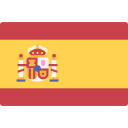Python has become one of the most popular programming languages in the world. It is easy to learn for beginners and powerful enough for experienced developers to use for web development, data science, machine learning, and other complex applications. Python is a general-purpose interpreted, high-level, dynamic programming language that focuses on code readability.
Python developers are in high demand due to the increasing popularity of the language and the many modules and libraries that are available for it.
10 things a Python developer does
A Python developer should have Python programming skills for writing, testing, and maintaining code written in the Python programming language. A Python Developer must learn object-oriented programming, basic Python syntax, semantics, primitive data types, and arithmetic operators. They often collaborate with other developers to ensure the project meets its goals efficiently and effectively.
Some of their key responsibilities include:
1. Developing back-end components
Python developers create the interface between a website and its server. This includes developing components such as web applications, APIs, databases, and other services. This means that back-end developers must have a strong understanding of the Python language, as well as any Python frameworks (such as Django and Flask).
2. Integrating user-facing elements
Python developers are also responsible for developing user-facing elements to help integrate the application into the end user’s environment. This includes building out front-end components such as HTML, CSS, and JavaScript.
3. Writing server-side logic
Python developers are typically responsible for writing the server-side logic that runs the application. This includes things such as authentication, authorization, input validations, and other functionality that is needed to make sure that the application behaves as expected.
4. Designing and implementing data storage solutions
Python developers need to be familiar with Python data structures, various databases and data storage solutions to ensure that the application can store and manage its data efficiently so that it can be used for data analysis. This includes understanding SQL and NoSQL databases, as well as designing efficient database schemas.
5. Debugging and optimizing Python code
Python developers must have an eye for detail and be able to troubleshoot and optimize the code they write. This means regularly reviewing existing code and looking for ways to make it more efficient or fix issues before they become bigger problems.
6. Working with other teams
Python developers often need to collaborate with other teams such as product, design, and system administrators to ensure that their code works properly and meets the project’s goals. This requires excellent communication skills and an understanding of how all the different teams work together.
7. Testing code
A Python developer is responsible for testing their code to ensure that it performs as expected in various environments and scenarios. This means setting up test cases, running them, and debugging any issues that arise.
8. Deploying applications
A Python developer is also responsible for deploying applications to production servers and ensuring that they run correctly in the desired environment. This includes setting up configurations, running scripts, and troubleshooting issues as needed.
9. Maintaining code quality
In addition to writing code, Python developers are responsible for making sure that the code they write meets the project’s standards. This includes writing tests, adhering to coding conventions, and refactoring code as needed.
10. Researching new technologies
Python developers need to be able to stay up-to-date on the latest technologies in order to ensure that their code remains efficient and relevant. This means regularly researching new libraries and technologies, as well as understanding how they can benefit the project.
These are just a few of the key responsibilities of a Python developer. To ensure successful projects, it’s important to hire experienced developers who understand the language and have a solid background in software development.
How can you tell if a Python developer is skilled and experienced?
One of the best ways to evaluate a potential candidate is by asking them technical questions related to Python and software development. The answers to these questions will give you an idea of their level of expertise and help you decide if they’re the right fit for your project. Some of the questions you could ask are:
What Python libraries and frameworks have you worked with?
How do you approach debugging an issue?
Have you ever refactored code or designed a database schema?
What is your experience with unit tests and TDD?
What are the biggest benefits/advantages of using Object-Oriented Programming?
Can you explain how the Python interpreter works?
These questions can give you a better understanding of the candidate’s skills and experience, as well as their approach to software development in general.
When looking for an experienced Python developer, it is also important to consider their portfolio and any previous work they have done. This can give you an idea of their coding style and help you decide if it would fit with the project you have in mind. Moreover, if the candidate has worked on similar projects before, it can be a good indicator of their expertise and ability to complete your project successfully.
How to get high-quality Python consultants to apply for your project
Write a detailed job description: To hire Python developers with the exact capabilities you’re looking for, the most important thing is to write a detailed and specific job description. This will help you attract developers with the right skills and experience for your project.
Advertise your job openings in the right places: Posting on professional networks such as LinkedIn and Stack Overflow is a good way to attract developers, but we recommend posting your project on Onsiter, a specialized platform for IT consultants.
By posting on Onsiter, you can be sure that your job will be seen by highly-skilled developers who are looking for short-term or long-term projects. Onsiter has a network of over 25,000 consultants from across Europe. The platform also allows you to easily search for candidates based on skillset, location, availability, and more – and you can personally invite developers who match your criteria to apply for the projects you post.
Get Right People Group to help you find your Python developer: We are an IT recruitment agency focusing on markets in Germany, Denmark, Finland, Norway, Spain, and Italy. Our expertise lies in finding the best IT professionals for projects of all sizes, from long-term contracts to short-term project-based assignments, remote or on-site.
Regardless of how specific your project needs are, we can find you the perfect Python developer in the countries where we operate through our wide network of IT consultants.
All you need to do is fill in this form and we’ll call you back to discuss your needs.
Conclusion
Python developers are responsible for a wide range of tasks, from writing code to deploying applications to researching new technologies. It’s important to hire experienced Python developers to ensure successful projects.
When evaluating candidates, be sure to ask them technical questions related to the language and software development. You should also take a look at their portfolio and any previous work they’ve done to get an idea of their coding style. The key to attracting the right candidate is to provide a detailed job description that outlines the requirements and responsibilities of the position.













